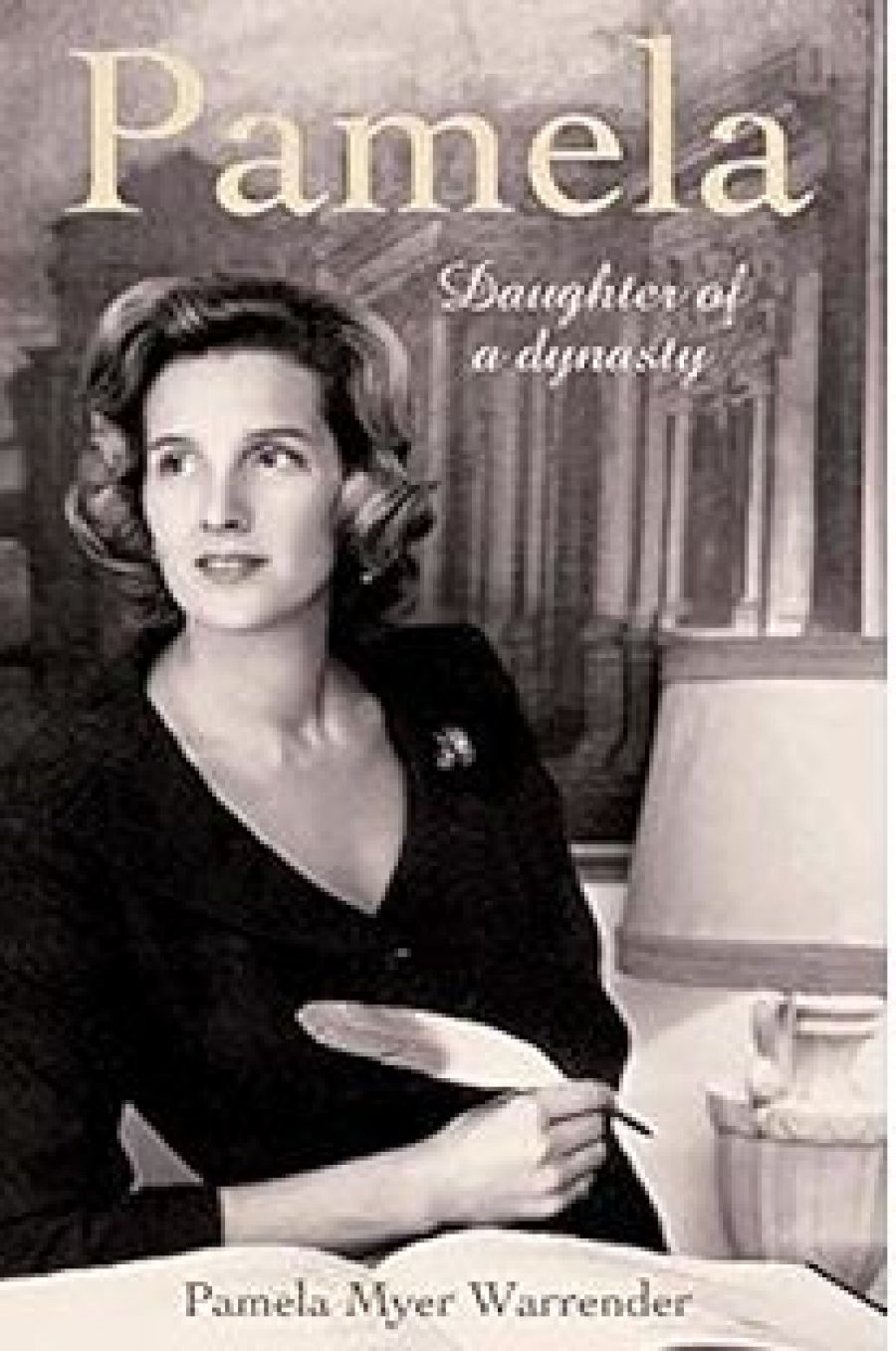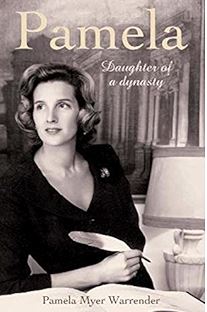
- Free Article: No
- Contents Category: Non-fiction
- Custom Article Title: Swings and roundabouts
- Review Article: Yes
- Article Title: Swings and roundabouts
- Online Only: No
- Custom Highlight Text:
Our retail establishment has never received the spotlight focused on its predecessors, the miners, pastoralists, makers and land boomers. The next wave, the shopkeepers – the Foys, McLellans, Treadways, Nathans, Morans and Coles – are mainly remembered by fading signs above grand buildings occupied by others. (For a wonderful example of history in pressed cement, stand in Prahran’s Cato Street car park and look east.) Melbourne’s glittering exception is the Jewish-Anglican Myer dynasty.
- Book 1 Title: Pamela
- Book 1 Subtitle: In her own right
- Book 1 Biblio: Hardie Grant Books, $49.95 hb, 330 pp
- Book 1 Cover Small (400 x 600):
- Book 1 Cover (800 x 1200):
Warrender grew up in one of Melbourne’s grandest art deco mansions, along with the butler, the nanny, the housekeeper, the maid, the gardener and the chauffeur for the LaSalle (the working man’s Cadillac). She was a tall, blonde, popular schoolgirl. The captain of most school teams, it was said that her blazer could have stood up by itself. As a post-debutante, she appeared to others, a few years to the north and a few postcodes to the south, as the epitome of prosperous, postwar, care-free glamour. Yet now we learn that the relations between the stocky, ebullient father and the tall, beautiful, convent-trained mother were tense and loveless. Their three children and the staff formed a tight little island of affection in an ocean of cold glamour.
Late in the war, Pamela met a well-born Royal Navy pilot, the younger son of a recently (1942) created Baron Bruntisfield. They married in London in 1950, in a fashionable ceremony at St George’s, Hanover Square. Like many young Australian women who have enriched noble British bloodlines for over a century, she fitted in. Her appalling mother-in-law (‘You may call me Lady D.’) corrected her dressing and choice of car colour. Her father-in-law, understandably, had progressed to another marriage.
Back in Melbourne, the Warrenders led a well-chronicled life: a neo-Georgian house in South Yarra and a contemporary, horsy hideaway at Dromana. The Hon. Simon Warrender entered the insurance business, a traditional choice for wellplaced Britishers with good connections but no training. His father-in-law was his anchor client.
On Norman Myer’s death in 1956, the company (since 1924 a public concern with diluted family control) vindictively withdrew their insurances and even cancelled his wife’s parking spot. The Warrender’s financial crisis was further compounded by the defalcation of an employee. Neither Eton nor the Royal Navy had provided the survival skills required in the tough, parochial business world of Melbourne in the 1970s.
Pamela Myer Warrender endured a series of personal crises and tragedies that she documents calmly in simple, welcome language. Her parents divorced; her father married one of her former schoolmates. She lost her elder son, Alexander, in a snowfields accident and her beloved elder brother, Rodney, tragically, a few years later.
After leaving school, she had embarked on several careers, all related to the fashion industry and all on the periphery of a generally uncooperative emporium. To help launch a postwar fashion festival she travelled to London. Her graphic, detailed story of the eight-day trip is a social history in itself: train to Sydney (with the inevitable change of gauge at Albury) and then by flying boat from Rose Bay, travelling across the east by day and resting in hotels each night. She was of the last generation to be tyrannised by distance but still experience international travel at a leisurely pace.
Pamela’s husband became obsessed with the idea of providing cheap air travel to Europe. His ambition and its name, Air Kangaroo, were fifty years before their time. His business failures, and the resultant pressures on the family, caused their estrangement. They separated. Pamela Warrender involved herself in various public ventures. In 1984 they agreed to, if such a thing is possible, an amicable divorce.
The last chapters of this warm, nostalgic book are devoted to the author’s messianic desire to ‘do something’ for her home town. The Committee for Melbourne, a group of prominent business people with which she was involved from its beginning, can only do so much. After all, our tycoons did bring Victorians, almost single-handedly, the Grand Prix. Our civic future will not be greatly influenced by private, idealistic forces, or even by the perennial tomfoolery at our town hall. It is a matter for state and federal governments – and that is real politics.
Pamela Warrender now lives in an elegant apartment in upper Toorak and cares for her stroke-stricken former husband. Over recent years she has established a relationship with a hitherto unknown son of Alexander.



Comments powered by CComment